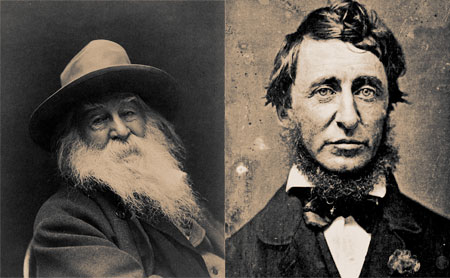5 Points: Boo, The Life of The World’s Cutest Dog
1) The first thing that blew me away when I returned home from Brooklyn and greedily opened my Boo (which was waiting for me along side biographies of Shakespeare and Jonson) was the sheer Whitmanesque charisma and scintillation of it all: the big-heated spirit, the boundless energy , the Joie-De-Vivre. And yet, also, I was amazed by a stealthy and shrewd persona. A veritable host of personas! But, all in all, loveable. Absolutely loveable.
I had to rub my eyes once or twice, I admit, and scratch my ass, pensively, and then return to the bounties of the book to see if it was all for real. I mean, how could it be ?? … But, Yes! Yes! Yes! … Look, for example, at how Whitman’s “I lean and loaf at my ease” translates, and upgrades even, so seamlessly, to Boo’s elegant and contemporary “I like to lounge around the house.”
And, delightfully, also, there is something tremendously naughty in the way Boo enchants us with his insouciance. His lazy wisdom. His casual control of self and universe. It is indeed impressive. And quite enchanting. Intoxicating. And heady…..Yes, folks hungry for the “real deal”, Boo is here. And he is a game changer. One for the cannon. Or one, really, round which the cannon rebuilds and redefines itself.
2) The most important question the serious student or master of literature must ask when measuring a candidate up against Walt Whitman, the Titan and father of American Literature, is “Does the subject contains multitudes??”
And indeed Boo proves over and over to be multitudinous READ MORE >
May 15th, 2014 / 9:00 am
Screaming Monsters and Sordid Gays: Ian Bogost’s Alien Phenomenology
I was really looking forward to reading Ian Bogost’s philosophy book, Alien Phenomenology, or What It’s Like to Be a Thing. Two girls who I absolutely admire — one who writes criticism about Thoreau, one who writes plays about Louis Braille — placed praise upon the book, and I was prepared to do similarly.
Ian’s book is bound to object-oriented ontology, a philosophy that posits that “nothing has special status, but that everything exists equally — plumbers, cotton, bonobos, DVDs.” For Ian, the world is composed of units, where “something is always something else.” Humans, the stars of so many philosophies, can neither be separated nor elevated above other things because those things are a part of them and they are a part of those things. While Kant (a bland German boy), Heidegger (a curious Nazi boy), and others put people on a peerless pedestal, Ian puts them in messy dot where millions of encounters occur at once. As Ian explains:
On August 10, 1973, at a boathouse in Southwest Houston, the shovel of a police forensics investigator struck the femur of one of the seventeen corpses excavated that week, victims of serial killer Dean Corll.
The boathouse, the shovel, the police boy, the serial killer — each is a unit, and each unit leads to other units. The serial killer boy probably possessed a mommy and daddy, and his mommy and daddy are units who are entwined with more units. Object-oriented ontology suggests the unceasing character of the Nazis, who were invariably inserting themselves into more land, lives, and histories. Units are all over, and, during World War Two, so were the Nazis.
But not all of object-oriented ontology can be compared to screaming monsters who slaughtered six million you-know-whos and five million ummms. Some of Ian’s philosophy aligns with utterly unpleasant people, like Walt Whitman and Allen Ginsberg. Each of these canonized homosexuals has a penchant for lists. Whitman enumerates his electrified body parts while Ginsberg tells of the objects that have transfixed his tushy. For Ian, “Lists remind us that no matter how fluidly a system may operate, its members nevertheless remain utterly isolated, mutual aliens.” Whitman-Ginsberg types show this shared separateness in a most sordid way. Queer theorist Tim Dean details how homosexuals disclose the inevitable objectification of s-e-x. Disputing Andrea Dworkin’s belief that porn “dehumanizes those whom it fetishizes,” Dean says that all s-e-x, not just the porn kind, “fragments and particularizes.” Such fragmentation is disgustingly displayed in the gay community, whose members, according to Dean, BJ boys through holes in the wall, then spit the c-u-m into a container, which is then funneled into other boys’ tushies.
Spicer on Whitman
Forgive me Walt Whitman, you whose fine mouth has sucked the cock of the heart of the country for fifty years. You did not ever understand cruelty. It was that that severed your world from me, fouled your moon and your ocean, threw me out of your bearded paradise. The comrade you are walking with suddenly twists your hand off. The ghost-bird that is singing to you suddenly leaves a large seagull dropping in your eye. You are sucking the cock of a heart that has clap.
from “Some Notes on Whitman for Allen Joyce”
Historical Shop Talk

A letter from H.D. Thoreau to Unitarian minister H.G.O. Blake, mostly about the subject of Walt Whitman:
Dec. 7, 1856
That Walt Whitman, of whom I wrote to you, is the most interesting fact to me at the present. I have just read his 2nd edition (which he gave me) and it has done me more good than any reading for a long time. Perhaps I remember best the poem of Walt Whitman an American & the Sun Down Poem. There are 2 or 3 pieces in the book which are disagreeable to say the least, simply sensual. He does not celebrate love at all. It is as if the beasts spoke. I think that men have not been ashamed of themselves without reason. No doubt, there have always been dens where such deeds were unblushingly recited, and it is no merit to compete with their inhabitants. READ MORE >



